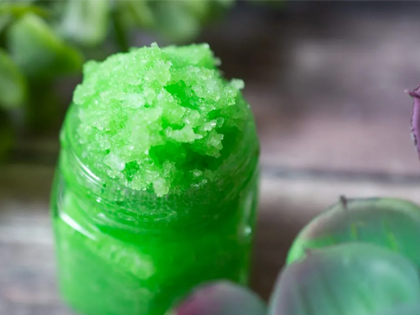Becoming self-sustainable is a commendable endeavor that requires a commitment to reducing your reliance on external resources while also prioritizing your health and the environment. Here’s an in-depth step-by-step guide for beginners who want to make the switch for their health & wellbeing:
1. Educate Yourself:
- Research: Start by reading books, articles, and websites about sustainable living. Understand the impact of conventional products on health and the environment. Apps such as TikTok & Reddit offer great resources.
- Documentaries and Online Courses: Watch documentaries like “Food, Inc.” and “The True Cost” to learn about food and product production. Consider taking online courses on sustainability topics.
2. Food Choices:
- Organic and Local: Choose organic and locally sourced food to reduce exposure to pesticides and support local farmers.
- Grow Your Own: If possible, start a garden. Research what crops grow well in your region, and learn about composting and natural pest control.
- Preservation: Learn how to can, freeze, or dehydrate excess produce to reduce food waste.
3. Sustainable Products:
- Research Ingredients: Investigate the ingredients in your household products. Avoid products containing harmful chemicals like phthalates, parabens, and synthetic fragrances.
- DIY Cleaners: Make your own natural cleaning products using ingredients like vinegar, baking soda, and essential oils. They are effective and eco-friendly.
4. Rainwater Harvesting:
- Legalities: Check your local laws and regulations regarding rainwater harvesting. Ensure it’s allowed in your area.
- Collecting Rainwater: Invest in rain barrels or tanks to collect rainwater from your roof. Install gutters and a filtration system to keep the water clean.
- Purification: Use a filtration system or boil the rainwater before drinking it to ensure it’s safe for consumption.
- Usage: Rainwater can be used for drinking (if properly purified), gardening, flushing toilets, and even laundry, reducing your reliance on municipal water sources.
5. Off-Grid Living:
- Energy Sources: Consider alternative energy sources like solar panels, wind turbines, or hydropower to generate your electricity.
- Waste Management: Learn about composting, recycling, and reducing waste. Practice responsible waste disposal methods.
- Skills Development: Acquire skills like food preservation, carpentry, and basic DIY skills to maintain your off-grid lifestyle effectively.
6. Community Involvement:
- Join Local Groups: Connect with local sustainability groups, farmers’ markets, and like-minded individuals to share knowledge and resources.
- Barter and Trade: Participate in local barter systems to exchange goods and services without relying on money.
7. Financial Planning:
- Budgeting: Create a sustainable living budget. Consider upfront costs like solar panels, rainwater harvesting systems, and garden tools.
- Emergency Fund: Establish an emergency fund to cover unexpected expenses.
8. Patience and Adaptability:
- Understand that the transition to self-sustainability takes time. Be patient with yourself and adapt your practices as you learn and grow.
9. Evaluate Progress:
- Regularly assess your progress towards self-sustainability. Keep track of your successes and challenges and adjust your lifestyle accordingly.
10. Inspire Others:
- Share your knowledge and experiences with friends and family to inspire them to make sustainable choices too.
In conclusion, transitioning to a more self-sustainable lifestyle is a meaningful journey that involves education, conscious choices, and dedication. It not only benefits your health but also reduces your ecological footprint, contributing to a better world for everyone. Living off-grid can be a fulfilling and rewarding way of life that allows you to live in harmony with nature while minimizing your impact on the environment.


 One Food That Could be Causing You Problems in the Bedroom
One Food That Could be Causing You Problems in the Bedroom Now Legal in All 50 States
Now Legal in All 50 States Obliterating Nerve Pain Naturally
Obliterating Nerve Pain Naturally Ringing Ears?? Try this…
Ringing Ears?? Try this…



Leave a Reply